Mark Anthony Neal's Blog, page 143
November 19, 2021
Four Centuries of Black American History are Told in New Kronos Quartet Performance

'Deep in the heart of Texas, the Kronos Quartet reflects on race relations and social unrest with At War with Ourselves – 400 Years of You, by composer Michael Abels and poet Nikky Finney.' -- All Things Considered
Gordon Parks Documentary 'A Choice of Weapons'
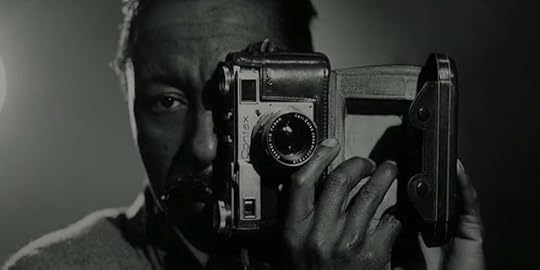
'The HBO documentary “A Choice of Weapons: Inspired by Gordon Parks” provides a portrait of the acclaimed photographer and his legacy, via interviews with fans including Spike Lee, Ava Duvernay, and Kareem Abdul Jabbar, and reflections from photographers whom Parks influenced. Director John Maggio and photographer Jamel Shabazz join All Of It to talk the film.'
How ‘Passing’ Upends a Problematic Hollywood History
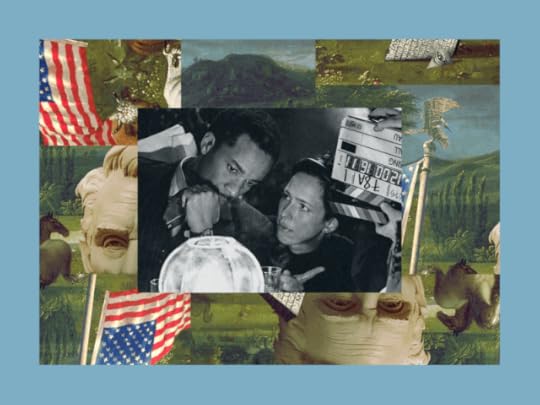
'Hollywood has a long history of “passing movies”—films in which Black characters pass for white—usually starring white actors. Even as these films have attempted to depict the devastating effect of racism in America, they have trafficked in tired tropes about Blackness. But a movie from actor-writer-director Rebecca Hall takes the problematic conventions of this uniquely American genre and turns them on their head. Hall tells The Experiment the story of how her movie came to life, and how making the film helped her grapple with her own family’s secrets around race and identity.'
November 18, 2021
Mark Anthon Neal Talks 'Copaganda' and Black Studies on KBLA TALK 1580 with Tavis Smiley
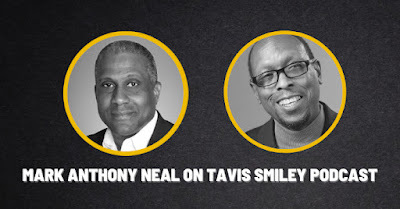
Duke University Professor Mark Anthony Neal joins host Tavis Smiley on KBLA TALK 1580. The two discuss the legacy of Black Studies and Neal's essay on "Copaganda" in the collection Abolition for the People: The Movement for a Future Without Policing & Prisons, edited by Colin Kaepernick.
Virtual Annual Rothschild Lecture with Artist Renee Cox
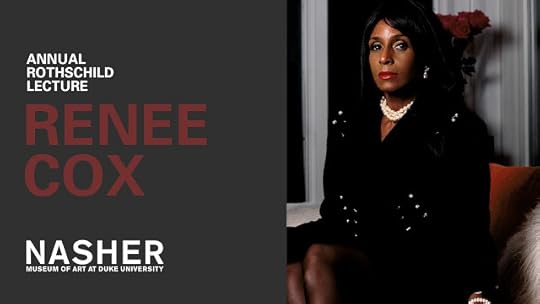
'The 2021 Rothschild Lecture featured Renee Cox, who was born in Colgate, Jamaica, and who lives and works in New York. She is a photographer, lecturer, political activist and curator whose feminist work forthrightly critiques structures of power. Her work, "The Housewife Missy at Home" from the series "Black Housewives," is on view in "In Relation to Power: Politically Engaged Works from the Collection" at the NasherMuseum.'
November 17, 2021
Left of Black S12 · E2 | 'The Dirty South' with Valerie Cassel Oliver

We all know the importance of Black artists at pointing to what's wrong with our world through poignant critique or presenting a celebration of Black joy in their work. But what about the role of the Black curator in amplifying the voice of our artists to give them a space to display their most provocative work? On this episode of Left of Black, host and Duke University Professor Mark Anthony Neal is joined by art world sensation, Valerie Cassel Oliver, Curator of Modern and Contemporary Art at the Virginia Museum of Fine Arts as they unpack her most recent exhibit, The Dirty South: Contemporary Art, Material Culture, and the Sonic Impulse.
Racial Covenants, a Relic of the Past, are Still on the Books Across the Country

'Racial covenants made it illegal for Black people to live in white neighborhoods. Now they're illegal, but you might still have one on your home's deed. And they're hard to remove.' -- Morning Edition
November 16, 2021
Poet, Composer, Stutterer JJJJJerome Ellis Creatively Shapes Time

'Poet, sax player, electronic music producer, storyteller, and composer JJJJJerome Ellis is a stutterer. On his 2021 album The Clearing, he takes speech disfluency and considers how it affects one’s experience of time. He explains to Soundcheck “The Clearing” as that sense of unknowing in the moments where he is stuttering. It’s a space, a pause of suspension that opens up unexpectedly – "like when you’re hiking and suddenly you come to a clearing. You see the sun and take it all in, the light conditions, the plants, and how you might lose your path".'
'All That She Carried' Tells the Story of Generations of Black Women and the Love that Binds Them
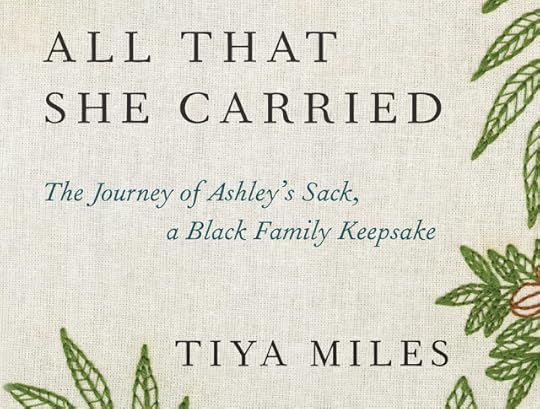
'A simple cotton sack is the subject of a book that's a finalist for the National Book Award. The “moving and mysterious” object captivated author and historian Tiya Miles, who combed through records and wrote All That She Carried: The Journey of Ashley's Sack, a Black Family Keepsake. A few lines stitched on the bag weave together three women, their lives, their generations, their love and their loss.' -- Here & Now
LaTricea Adams: Acting on Climate will Require an Emphasis on Environmental Justice

Acting on Climate will Require an Emphasis on Environmental Justice
by LaTricea Adams | special to NewBlackMan (in Exile)
When I recently opened the 2021 Young, Gifted, & Green 40 Under 40 Awards ceremony, I was reminded of the passion, hope, and hard work from young Black and Brown activists who drive the environmental justice movement.
The event featured speeches from EPA Administrator Michael Regan and Dr. Mustafa Santiago Ali, both of whom are environmental justice champions in their own right, and their recognition of new Black, Latinx, and Indigenous voices on the environmental justice scene spoke volumes. I’m proud of the grassroots movement we launched following the examples of our ancestors, the early stewards of this land, and embracing the activism of our environmental justice elders. This month as we mark the 30th anniversary of adopting the 17 principles of environmental justice, we vow to continue not only to fight climate change but to usher in a more just world by doing so.
Climate change affects us all, but its effects aren’t distributed equally. Already this year, one in three Americanshas lived through an extreme weather event. The IPCC has now established that climate change is driving these extreme weather events, making them more frequent and severe, a trend that will only worsen if we do not drastically curb our carbon pollution. The federal government’s Build Back Better Act, and the Justice40 Initiative included within it, are major policy pushes toward addressing environmental injustice, and our leaders must rally behind climate action for the sake of historically marginalized Americans and our country as a whole.
Due to racism, discriminatory zoning laws, lack of resources and investment, and the systematic placement of polluting industries in communities that lack the money and political representation to fight back against them, environmental injustices have persisted throughout the history of America. Black, Latinx, Indigenous, and other communities endure exposure to disproportionate rates of pollution, with people of color 1.5 times more likely to live in areas with poor air quality. This leads to higher rates of health disparities especially related to respiratory conditions like asthma and COPD.
When extreme weather events like hurricanes, wildfires, and heat waves occur, they hit frontline communities first and worst. Lower-wealth families often lack the resources to get out of a hurricane’s path and rebuild if the storm causes damage to homes and communities, which have suffered. On top of this, the toxic spills linked to destructive flooding are more likely to poison Black and Brown communities because of their proximity to polluting industries.
Changing this system will take a national effort -- and President Joe Biden’s Justice40 Initiative embarks on that. This initiative mandates that 40% of the benefits of all climate investments be targeted towards the communities who’ve historically borne the brunt of climate change and pollution. This is a huge step towards correcting the environmental injustices of the past and ensuring all communities can have a brighter, healthier, safer clean energy future.
As founder of Black Millennials 4 Flint, which fights lead exposure in Black and Latinx communities and brings like-minded groups together for similar environmental justice initiatives, I have long worked at the intersection of public health, racism, and climate pollution -- and I know to address even one of these issues, we must take on all of them.
If Congress passes the Build Back Better Act, our nation can then begin to invest in cleaning up wastewater hazards and fixing our country’s water infrastructure, averting future environmental catastrophes. We can also invest in Black communities that have disproportionately been left behind in the transition to clean energy, building solar installations in low-wealth communities and cleaning up the legacies of toxic superfund sites.
Getting to the root of environmental injustices is going to be an extended process. President Biden’s Build Back Better agenda puts us on the path forward. It was created with major input from the White House Environmental Justice Advisory Council, a group of experts with on-the-ground experience fighting to uplift our communities and ensure healthier and wealthier living environments exist for all.
Now, it is up to all our leaders in Washington to make sure that environmental justice measures meet the moment by going as far as they possibly can. Our communities’ needs must be at the forefront when it comes to achieving a better future through investments in jobs, climate, and justice. Our elected officials cannot compromise when it comes to our health, livelihoods, and collective future -everything hangs in the balance. We must demand that they take action now.
***
LaTricea Adamsis founder, CEO, and President of Black Millennials 4 Flint and the youngest Black woman member of the White House Environmental Justice Advisory Council.
Mark Anthony Neal's Blog
- Mark Anthony Neal's profile
- 30 followers



